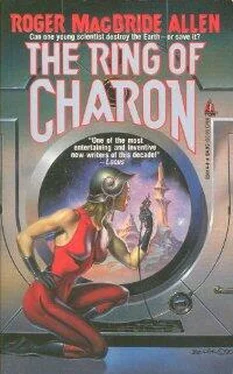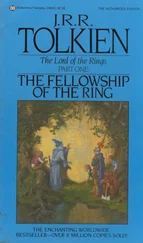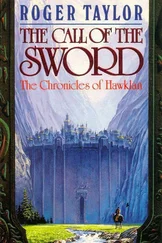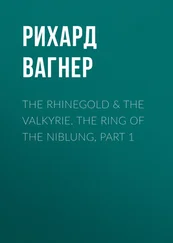Roger Allen - The Ring of Charon
Здесь есть возможность читать онлайн «Roger Allen - The Ring of Charon» весь текст электронной книги совершенно бесплатно (целиком полную версию без сокращений). В некоторых случаях можно слушать аудио, скачать через торрент в формате fb2 и присутствует краткое содержание. Год выпуска: 1990, ISBN: 1990, Издательство: Tor Books, Жанр: Фантастика и фэнтези, на английском языке. Описание произведения, (предисловие) а так же отзывы посетителей доступны на портале библиотеки ЛибКат.
- Название:The Ring of Charon
- Автор:
- Издательство:Tor Books
- Жанр:
- Год:1990
- ISBN:0-812-53014-4
- Рейтинг книги:5 / 5. Голосов: 1
-
Избранное:Добавить в избранное
- Отзывы:
-
Ваша оценка:
- 100
- 1
- 2
- 3
- 4
- 5
The Ring of Charon: краткое содержание, описание и аннотация
Предлагаем к чтению аннотацию, описание, краткое содержание или предисловие (зависит от того, что написал сам автор книги «The Ring of Charon»). Если вы не нашли необходимую информацию о книге — напишите в комментариях, мы постараемся отыскать её.
The Ring of Charon — читать онлайн бесплатно полную книгу (весь текст) целиком
Ниже представлен текст книги, разбитый по страницам. Система сохранения места последней прочитанной страницы, позволяет с удобством читать онлайн бесплатно книгу «The Ring of Charon», без необходимости каждый раз заново искать на чём Вы остановились. Поставьте закладку, и сможете в любой момент перейти на страницу, на которой закончили чтение.
Интервал:
Закладка:
Larry reddened, lifted his hand in protest. “Of course I feel guilty. Of course I want to help. What’s wrong with that?”
“Nothing. That is precisely the trouble. I am faced by two admirable young men, far more like each other than they realize, each courageous, each willing to offer up his life in the cause, each armed with logical reasons for following his desired course of action.
“You are right, Mr. Dreyfuss. Although we need your skills, they are more easily replaced than Mr. Chao’s intuitive understanding of gravities. You are more expendable. Nor should we risk more than one person on this job.
“And you are right, Mr. Chao. It may well be wise to get a gravities man down there.” Daltry looked down at his notepack again. “I notice one other thing in your file. You are experienced with teleoperators?”
Larry hesitated a moment. “Well, yes. I am. We use them at the Gravities Station for doing maintenance on the Ring.”
“Wait a second,” Lucian said. “A teleoperator. A remote-control robot? Those things don’t give you the dexterity or the reflexes you need for this kind of job.”
“I agree,” Daltry said. “We can’t send a T.O. down by itself. But they do have advantages. They can do heavy lifting. They can carry telemetry. And they are expendable. Of course, we haven’t found the entrance to this so-called Rabbit Hole yet. Maybe we won’t find it in time for Mr. Chao to run the T.O. from the surface. Maybe we’ll never find it. But if we do, it seems to me, Mr. Dreyfuss, that we could send a T.O. down with you .”
Lucian glared at the chancellor. Trust a guy like Daltry to make sure no one got what he wanted.
How did it go? Coyote Westlake tried to remember the lessons from her old pilot’s physics course text on the differences between rockets and gravity.
No matter where in the system you measure, a rocket-propelled system shows acceleration in the same direction and at the same strength. Not so with gravity. Gravity pulls in from all directions, radially, toward a central point. The further you get from the source, the weaker it gets. So measurements at different points inside a gravity field should reveal different values for both direction and strength of acceleration.
That clear in her mind, Coyote set to work experimenting. She dropped weights from the ceiling and timed the fall to measure rate of acceleration. She hung other weights on lines to measure direction. Crude stuff, but the answers they gave were damn confusing. Things dropped from the side of the cylinder furthest from the asteroid fell at virtually the same speed as things dropped from closer in, but nothing dropped in a straight line. Everything curved in toward the asteroid as it fell, and curved more sharply when dropped on the rockward side of the shed. Weighted cords did not hang straight up and down the way plumb lines were meant to. Instead, they curved throughout their lengths in strange, disturbing patterns, as if they were drawing the gee-field lines of force in midair. It was as if she were in a cross-breed field, somewhere between linear acceleration and a gravity field.
Directionalized gravity. Suppose someone, somehow, had put a gravity source—a powerful one—just in front of the asteroid, and then set the gee source moving, accelerating? And suppose that someone focused the gee source’s gravity field, somehow, so its entire force was directed through the body of the asteroid, and with just a little of it slopping over to pass through her hab shelter, for example. Think of it as a tractor beam , she told herself. The asteroid would be set to falling, pulled toward the moving gee source, and her hab shelter, outside the path of the beam but physically attached to the asteroid, would experience forward linear acceleration as it was dragged along, with the result that things inside the shed would fall backwards. Plus a little leakage from the tractor beam, pulling in toward the rock. It fits the facts of her situation. Maybe it was even true. That ancient and mythical patron of engineers, Saint Ruben of Goldberg, would have loved it.
The whole theory depended, however, on there being something to provide a gravity field just ahead of the asteroid. And her exterior camera revealed that there was nothing there.
Okay then. Run through the facts. There was no rocket pushing the asteroid from behind. And nothing visible to produce the tractor beam that seemed to be pulling it from in front. What did that leave?
How about something inside the rock, some projector or gadget that produced and accelerated the focused gravity field that seemed to be pulling the asteroid along? A gizmo that in effect pulled the asteroid along by its own bootstraps.
Just as she came up with that idea, the seismo alarm bleeped again. Not as if she needed the alert. She could feel the whole asteroid shuddering. At first she had thought—or at least had hoped—that the microquakes were just the asteroid reaching a new equilibrium, a normal reaction to a most abnormal source of acceleration.
If that were the case, the quakes should have faded away after a while. She checked the seismometer. This quake was precisely as powerful as the first one had been—and the quakes were coming at regular intervals, too. She had timed it: one rumble every 128 seconds. Something about the microquakes reminded her of the street rumbling as a subway train passed beneath her feet.
So maybe there was something moving around inside the asteroid. Coyote found herself with a sudden need to know where it was, exactly. She realized that she wanted a peek at this gizmo. Maybe she had a bad case of cabin fever, but she had the sudden urge to get out, to drill her way in through the rock and give the whatever-it-was a look-see. But first she needed to know where it was.
The seismometer. She could get readings from it from different points in the hab shed and triangulate back to locate the epicenter inside the rock. She set to work.
She spent the next several hours methodically getting as many readings as possible on the epicenter of the quake. It felt good to have something to do.
She didn’t really start getting scared until she had a good solid position. Until she had the chance to face this thing, whatever it was. Forcing herself not to think about what she was doing, she loaded the gee source’s position into her inertial tracker’s memory and got ready to go look at the thing in the rock. She climbed into her pressure suit and cycled through the airlock to the surface of the asteroid.
Outside, that five-percent acceleration was a positive menace. Make one wrong move, fall off the asteroid, and there would be no way back. No big deal as long as you’re careful , Coyote told herself, and tried to believe it. Back when this was just another rock to mine, Coyote had bolted any number of handholds to the rock. Now she kept herself clipped to a safety line at all times, and she made sure the line was always looped through at least two handholds. At least the borer was where she had left it last, carefully secured to its storage stand.
But the tunnel borer wasn’t meant to be horsed around by just one person under these conditions. It was tough going to fuel it up while keeping the fat exhaust tube from getting completely out of control.
Once she had the borer fueled and primed, she drilled into the rock more or less at random, just to get inside the asteroid and put some rock under her feet. It was hot work. The borer, really just a pocket fusion torch, worked by vaporizing and ionizing a small percentage of the rock. That broke the chemical bonds that held the rock together, making it collapse into powder. The borer’s exhaust system used an electric charge to pull the rock dust out of the tunnel, taking the heat along with it, but nonetheless the heat and dust were everywhere. Coyote’s suit could not dump the heat fast enough and she was bathed in sweat. Her faceplate was instantly coated with dust, and Coyote whispered a prayer of thanks to Saint Ruben and whoever it was who had thought of putting wipers on the outside of suit helmets.
Читать дальшеИнтервал:
Закладка:
Похожие книги на «The Ring of Charon»
Представляем Вашему вниманию похожие книги на «The Ring of Charon» списком для выбора. Мы отобрали схожую по названию и смыслу литературу в надежде предоставить читателям больше вариантов отыскать новые, интересные, ещё непрочитанные произведения.
Обсуждение, отзывы о книге «The Ring of Charon» и просто собственные мнения читателей. Оставьте ваши комментарии, напишите, что Вы думаете о произведении, его смысле или главных героях. Укажите что конкретно понравилось, а что нет, и почему Вы так считаете.












